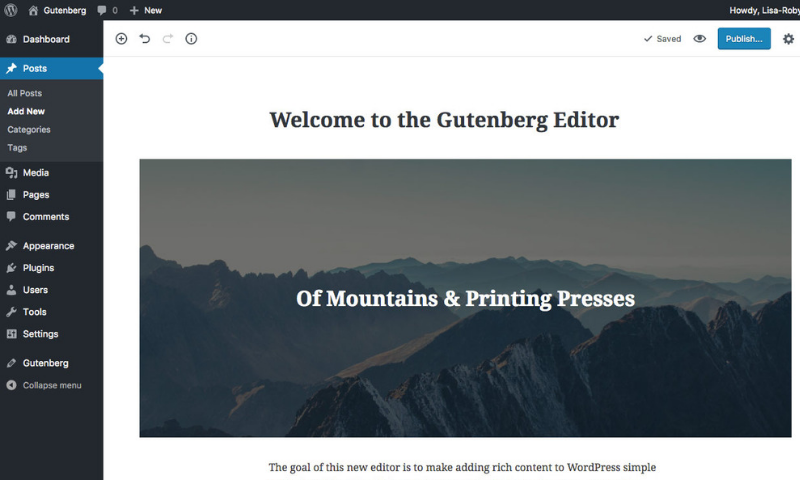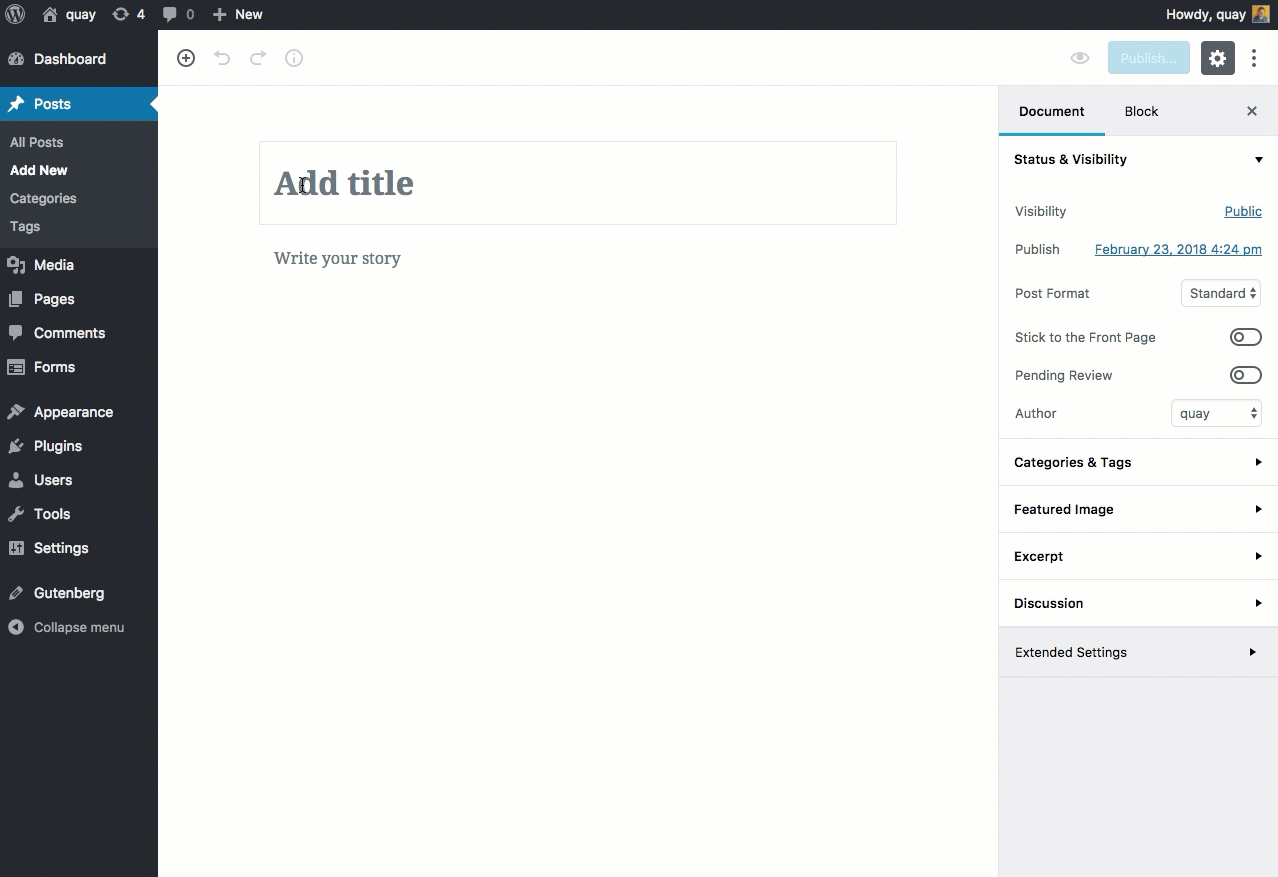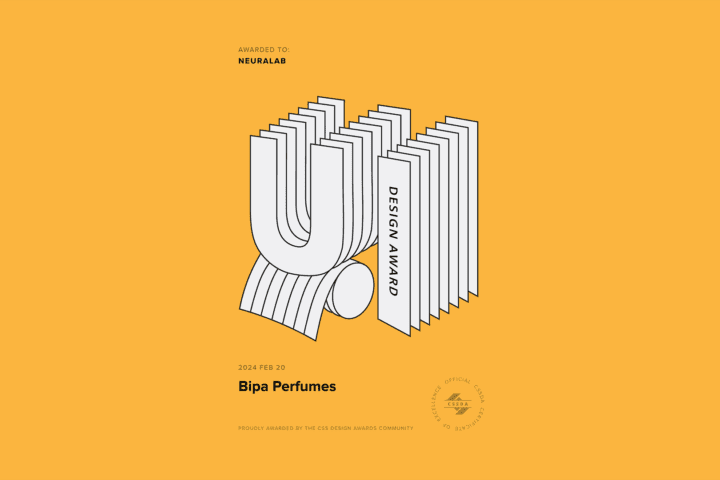WordPress 5 and its editor Gutenberg have divided the WordPress community
WordPress 5 is coming, you better watch out? The first upgrade of WordPress editor in a long time has divided the community, but what does it even bring us and do you even need it?
WordPress represents far more than just a system in which we type articles to almost everyone at Netokracija. The CMS that drives almost one third of the entire Internet is something we look at and use every day. Hence, any changes made to it always have high impact, not just in our country, but worldwide. That is exactly what happened with WordPress 5.0, that recently saw the light of day.

I have talked with Krešimir Končić, director of the agency Neuralab, about how it looks and whether we will write better texts in it. Krešimir tells me that great attention has been paid to WordPress 5 because of the fact that, as he points out, it was “forced” by Automattic, the development company that is behind WordPress, along with the great community of those who contribute to this system. However, Krešimir looks at this forcing in a positive context.
As it was clear that (from the accessibility side) Gutenberg was not “production ready”, a part of the WordPress community was cheering for postponing the launch, while others wanted to see the release of Gutenberg into the world as soon as possible. And so this was the first WordPress update where words such as politics and resignations were used, so it was interesting to follow the discussions between community freethinkers and traditionalists.
It might be time for a change
Subjectively, Krešimir agrees with Matt Mullenweg who says that this new WordPress is actually the platform foundation for the next 15 years. The above-mentioned Gutenberg is the star of this upgrade and represents a brand new look of the famous WordPress editor we all know and (more or less) love. However, since after many years its age started showing, Automattic decided to completely refresh the editor. I wanted to find out the biggest advantages and disadvantages of this lovely new content editing system from Krešimir:
The most important advantage is enabling the creation of interactive content in blocks, columns and rows, i.e. exactly the way the editor imagines his page should look like.
He also adds that the modern web is not meant to show linear content offered by the traditional editor, so Gutenberg is a logical step towards making more complex types of content. Obviously, certain problems come along with these possibilities. Krešimir:
The question is how Gutenberg will be implemented on every web project, and this is where I see the biggest flaw – it is not good that non-developers have too much control over content because the editor, for example, can damage SEO efforts, loading speed and the previously mentioned accessibility settings. Page builders are nice to have at first, but when we get to system upgrades and content stability, they fail to perform or are simply slower as all the measurements have shown.
Welcome for big sites
Still, what does this mean for you, a regular WordPress user? Well, it really depends on what kind of a user you are. As Gutenberg and WordPress 5.0 are favourable for those who have sites with separate WooCommerce products, large photo galleries and various texts, Gutenberg will be a great Christmas gift because it will greatly facilitate their work, Krešimir says. For the rest of you, it might be a better piece of advice not to change anything and keep the old editor with the help of your developers, he adds.
It seems that 2019 will really be the year of Gutenberg, and I asked Krešimir to assess market movements in the next year:
In 2019 we’ll witness a tug of war between WordPress and commercial sites or page builders. WordPress market share grew year-over-year with 17.3%, which is impressive, but not nearly as fast as Squarespace (180%) and Wix (233%) grow.
He also adds that they seek to actively educate all their clients that WordPress is still a better solution than Shopify or Wix, and Gutenberg will now greatly help in backing up these claims. Krešimir also says that he does not believe that there will be major problems in adopting Gutenberg for their clients because he believes that clients themselves will have more options for creativity and marketing campaigns.

Moving towards future
Of course, Gutenberg will not be immediately implemented in all projects at Neuralab (as in most other agencies), since this could undermine the stability of sites, but it will certainly be used for new projects that still need to see the light of day. Krešimir:
What I’m most looking forward to is using Gutenberg in situations when we create content for our clients and when our copywriters or designers start to create various custom blocks and new applications of Gutenberg.
As far as I am concerned, I believe I will keep typing in the old editor for some time, and as much as it sometimes makes me feel like jumping from the building window, I cannot say that I will not miss it when it is gone in 2021. And it is important to say that the editor itself is crucial, both for those who enter content as well as for those who perform site maintenance, because, as Krešimir said, using Gutenberg can slow the site down if you do not know exactly what you are doing.
I believe that this precisely is the biggest problem which developers will encounter, and since Gutenberg has no enviable results on sites with WordPress plugins, it will take some time for it to start being used absolutely everywhere. The old editor still prevails with its simplicity, but it really was the time for a change. Gutenberg today may not be perfect, but knowing the WordPress community, there will be much more work on it so it will get better and everyone who is working with WordPress will obviously have to learn to love it.
Author: IVAN ŠIMIĆ, Netokracija
Original article available here in Croatian.







